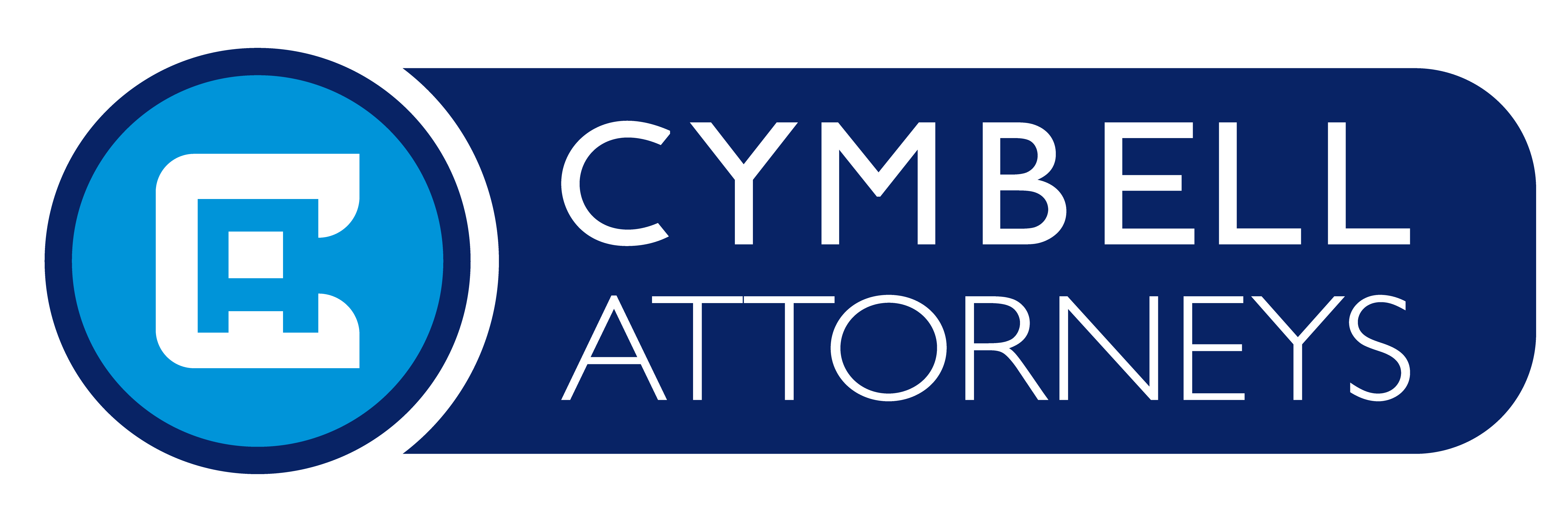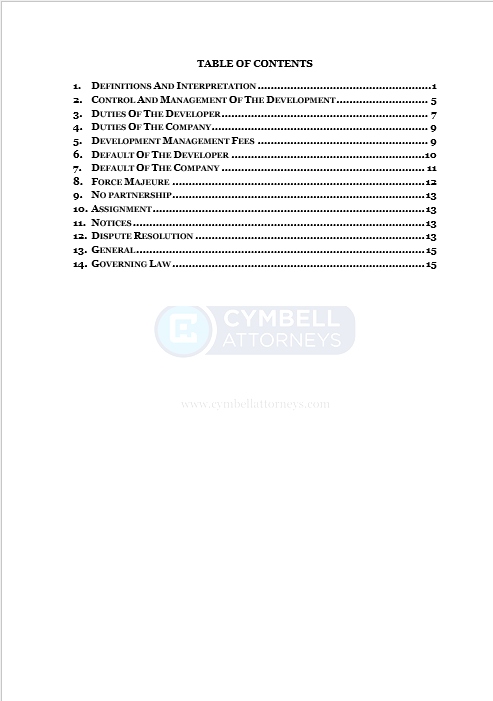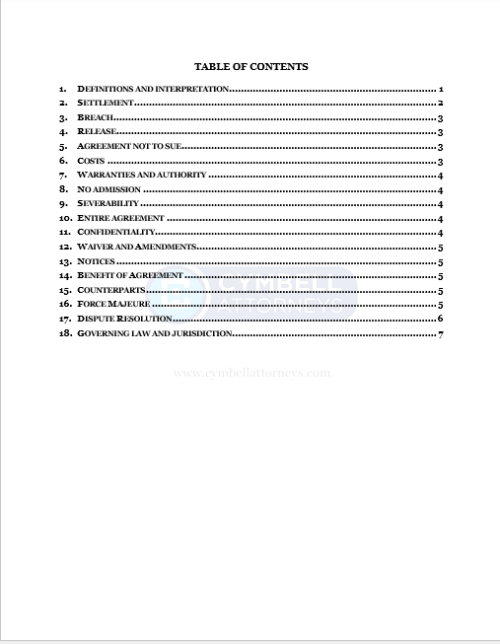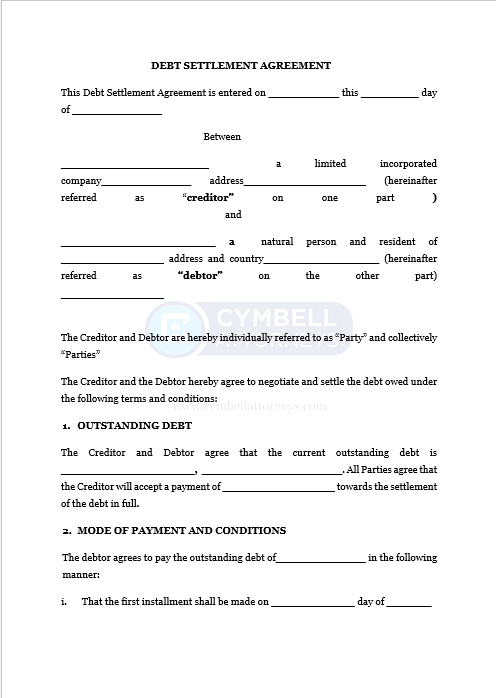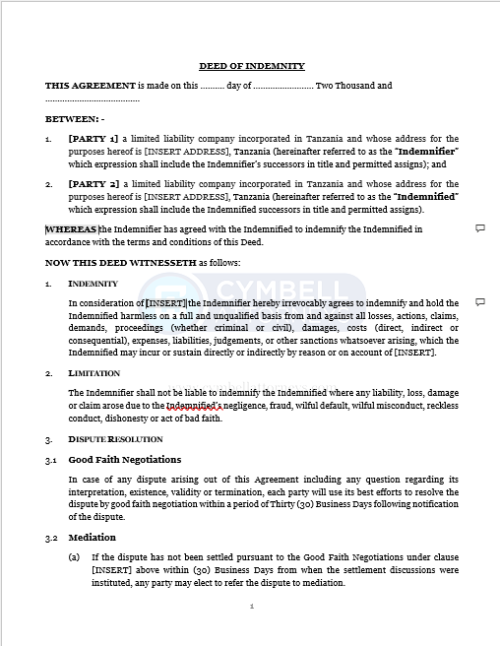-
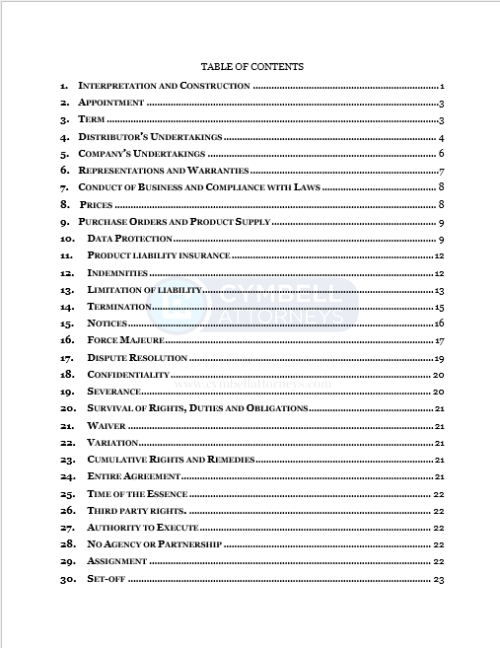 A distribution agreement is an agreement whereby a supplier or manufacturer of goods agrees that an independent third party called the distributor will market and sell the goods. The distributor buys the goods on their own account and trades under their own name. Distribution Agreements are of two types, exclusive distribution agreement and a non-exclusive distribution agreement. This template is a standard agreement with respect to the appointment of an exclusive distributor.
A distribution agreement is an agreement whereby a supplier or manufacturer of goods agrees that an independent third party called the distributor will market and sell the goods. The distributor buys the goods on their own account and trades under their own name. Distribution Agreements are of two types, exclusive distribution agreement and a non-exclusive distribution agreement. This template is a standard agreement with respect to the appointment of an exclusive distributor. -
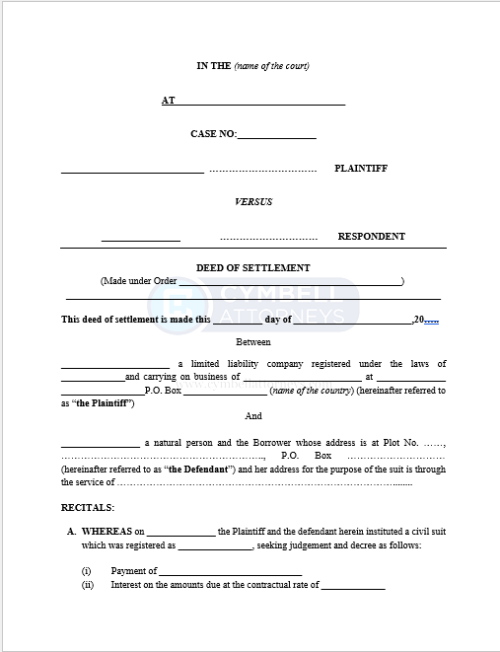 Notes:
Notes:- This precedent is intended to act as a guide in drafting Settlement deed between the parties for the payment of money due and payable to the plaintiff after instituting a case in court. The defendants agree that will pay the plaintiff the demanded amount as pleaded.
- The Settlement Deed is always filed in court readily to be adopted and endorsed as a court decree.
- It can be modified and amended from time to time depending on the terms and conditions and nature and demands of the parties.
-
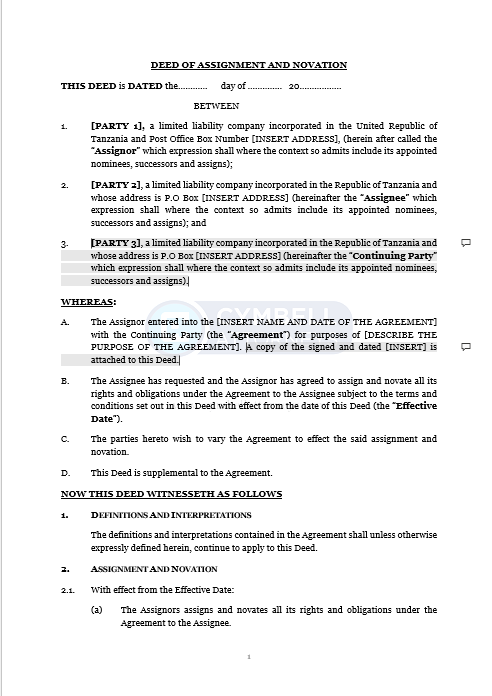 Notes: A Deed of Assignment of Trademark is a document through which the registered proprietor of a trademark transfers his/her/its rights, title and interest in the trademark to a third party. This gives the third party the right to use the trademark of the owner. Once the Deed of Assignment is done it is required to be registered with the Registrar of Trademarks. The difference between an assignment and a trademark is that a license allows the licensor to retain their rights and interests in their IP while an assignment transfer all of the assignor’s rights and interest to the assignee. This Deed is applicable in the following scenarios:
Notes: A Deed of Assignment of Trademark is a document through which the registered proprietor of a trademark transfers his/her/its rights, title and interest in the trademark to a third party. This gives the third party the right to use the trademark of the owner. Once the Deed of Assignment is done it is required to be registered with the Registrar of Trademarks. The difference between an assignment and a trademark is that a license allows the licensor to retain their rights and interests in their IP while an assignment transfer all of the assignor’s rights and interest to the assignee. This Deed is applicable in the following scenarios:- where the assignment is absolute; and
- where the goodwill of the business is being assigned.
-
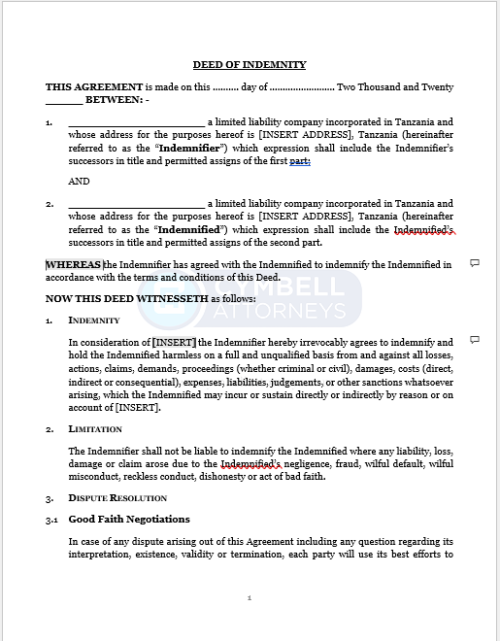 Notes: A Deed of Assignment of Trademark is a document through which the registered proprietor of a trademark transfers his/her/its rights, title and interest in the trademark to a third party. This gives the third party the right to use the trademark of the owner. Once the Deed of Assignment is done it is required to be registered with the Registrar of Trademarks. The difference between an assignment and a trademark is that a license allows the licensor to retain their rights and interests in their IP while an assignment transfer all of the assignor’s rights and interest to the assignee. This Deed is applicable in the following scenarios:
Notes: A Deed of Assignment of Trademark is a document through which the registered proprietor of a trademark transfers his/her/its rights, title and interest in the trademark to a third party. This gives the third party the right to use the trademark of the owner. Once the Deed of Assignment is done it is required to be registered with the Registrar of Trademarks. The difference between an assignment and a trademark is that a license allows the licensor to retain their rights and interests in their IP while an assignment transfer all of the assignor’s rights and interest to the assignee. This Deed is applicable in the following scenarios:- where the assignment is absolute; and
- where the goodwill of the business is being assigned.
-
 Notes: A Deed of Assignment of Trademark is a document through which the registered proprietor of a trademark transfers his/her/its rights, title and interest in the trademark to a third party. This gives the third party the right to use the trademark of the owner. Once the Deed of Assignment is done it is required to be registered with the Registrar of Trademarks. The difference between an assignment and a trademark is that a license allows the licensor to retain their rights and interests in their IP while an assignment transfer all of the assignor’s rights and interest to the assignee. This Deed is applicable in the following scenarios:
Notes: A Deed of Assignment of Trademark is a document through which the registered proprietor of a trademark transfers his/her/its rights, title and interest in the trademark to a third party. This gives the third party the right to use the trademark of the owner. Once the Deed of Assignment is done it is required to be registered with the Registrar of Trademarks. The difference between an assignment and a trademark is that a license allows the licensor to retain their rights and interests in their IP while an assignment transfer all of the assignor’s rights and interest to the assignee. This Deed is applicable in the following scenarios:- where the assignment is absolute; and
- where the goodwill of the business is being assigned.
-
 Notes: Deed of Assignment and Novation An assignment agreement transfers one party's rights under a contract to another party. The party transferring their rights is the assignor; the party receiving them is the assignee. Under an assignment only the benefits of the contract are transferred whilst the obligations remain with the assignor. Novation is a mechanism where one party transfers all its obligations and rights under a contract to a third party, with the consent of the original counterparty. This standard document has integrated notes with important explanations and drafting tips.
Notes: Deed of Assignment and Novation An assignment agreement transfers one party's rights under a contract to another party. The party transferring their rights is the assignor; the party receiving them is the assignee. Under an assignment only the benefits of the contract are transferred whilst the obligations remain with the assignor. Novation is a mechanism where one party transfers all its obligations and rights under a contract to a third party, with the consent of the original counterparty. This standard document has integrated notes with important explanations and drafting tips. -
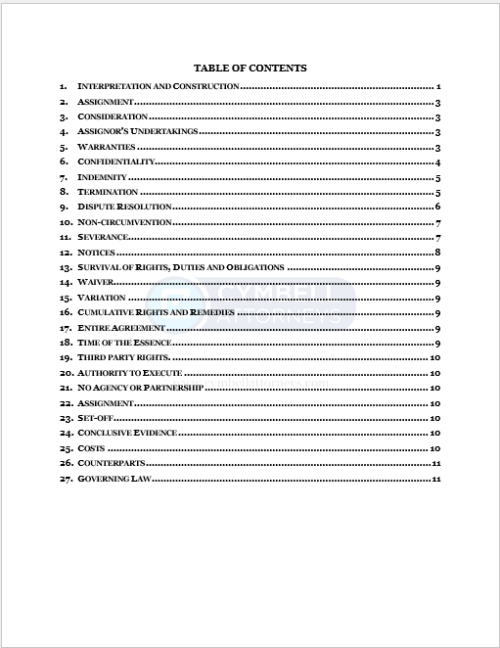 Notes:
Notes:- This precedent is intended to act as a guide in drafting a Deed of AdherenceNotes:A Deed of Assignment of Trademark is a document through which the registered proprietor of a trademark transfers his/her/its rights, title and interest in the trademark to a third party. This gives the third party the right to use the trademark of the owner.
Once the Deed of Assignment is done it is required to be registered with the Registrar of Trademarks.
The difference between an assignment and a trademark is that a license allows the licensor to retain their rights and interests in their IP while an assignment transfer all of the assignor’s rights and interest to the assignee.
This Deed is applicable in the following scenarios:
- where the assignment is absolute; and
- where the goodwill of the business is not being assigned.
- This precedent is intended to act as a guide in drafting a Deed of AdherenceNotes:A Deed of Assignment of Trademark is a document through which the registered proprietor of a trademark transfers his/her/its rights, title and interest in the trademark to a third party. This gives the third party the right to use the trademark of the owner.
Once the Deed of Assignment is done it is required to be registered with the Registrar of Trademarks.
The difference between an assignment and a trademark is that a license allows the licensor to retain their rights and interests in their IP while an assignment transfer all of the assignor’s rights and interest to the assignee.
This Deed is applicable in the following scenarios:
